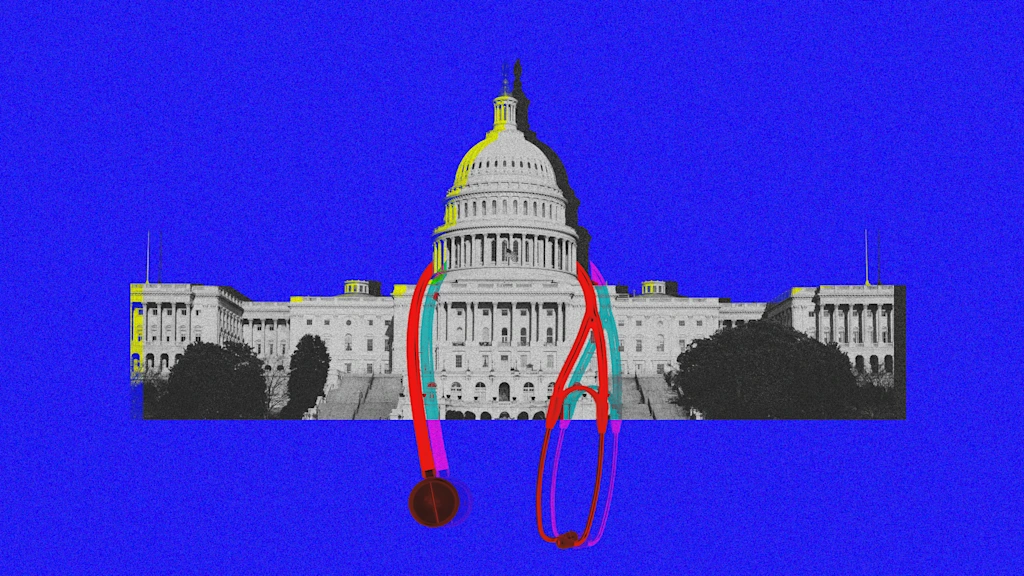
As the government shutdown nears its first full week and enters week two, lawmakers have made little headway in reaching an agreement that addresses Democrats’ public, frequently aired concerns over skyrocketing healthcare premiums hurtling towards the entire electorate.
The shutdown is largely a fight over healthcare, because the enhanced subsidies that help people obtain coverage under plans approved by Obamacare are set to expire at the end of the year. That will cause health premiums for millions of Americans to soar. These subsidies, created as part of the original 2010 Affordable Care Act (ACA), were extended during the pandemic, cutting healthcare coverage costs for qualifying plan purchasers among the more than 24 million Americans insured through the ACA marketplace this year.
While these subsidies were a temporary fix, they’ve since become embedded in how the individual marketplace functions, according to Mariam Eatedali, a vice president at Edelman’s public and government affairs team. And if they disappear, the ripple effects are unlikely to be contained.
“Employer health plans often feel indirect pressure when individual market costs rise,” Eatedali says. “The marketplace is recalibrating and waiting just ahead of enrollments beginning on November 1 to see what long-term direction Congress takes.”
Featured Video
An Inc.com Featured Presentation
But Congress still lacks direction, since bitterly divided lawmakers have failed to ink a plan on the subsidies, plus cuts made to Medicaid over the summer. For those taking bets, the consensus appears to be that a longer shutdown may be in store. Odds on Kalshi, a popular online betting platform, crept to 64 percent for those believing the shutdown would last more than 15 days as of late Tuesday afternoon.
At the same time, millions of Americans are expected to get a costly surprise in the next few weeks as letters are mailed out telling them how much more their health premiums will be in 2026. Analysis from KFF, a nonprofit specializing in health policy research, shows that the average monthly premium paid by Americans could climb to $1,904, up from the average of $888 paid this year. That’s a 114 percent increase that will hit people overnight.
About 20 percent of small businesses have relied on the ACA to offer health insurance to their workforce, according to a 2024 report from the Treasury Department. And roughly 164 million receive their health insurance through employer-sponsored plans, according to KFF.
If Congress fails to to extend these subsidies, it’s likely a chain reaction would impact prices for employer-sponsored plans, according to Virgil Bretz, co-founder and CEO of MacroHealth, a Seattle-based health analytics and technology company.
“[P]ayers have to be ready to accept higher reimbursement demands and renegotiate contracts and implement tighter cost control strategies for their employees, and then for the providers themselves, they are going to start having to make decisions on their own viability,” he says.
Time is the obvious pressure cooker element. Not only are letters about premiums going out soon, but the federal shutdown is already stalling paychecks for 750,000 federal workers — and the Trump administration on Tuesday suggested those who are furloughed may not be eligible for the back pay they typically receive when a shutdown ends.
So what’s usually a partisan issue is starting to garner support across the political aisle. Even those who are seldom sympathetic to Democratic interests are starting to speak out about the rising premiums.
“I’m going to go against everyone on this issue because when the tax credits expire this year my own adult children’s insurance premiums for 2026 are going to DOUBLE, along with all the wonderful families and hard-working people in my district,” Rep. Marjorie Taylor Greene (R-GA) wrote Tuesday in a post published on X.
President Donald Trump signaled on Monday that he’s open to negotiating with Democrats on the subsidies.